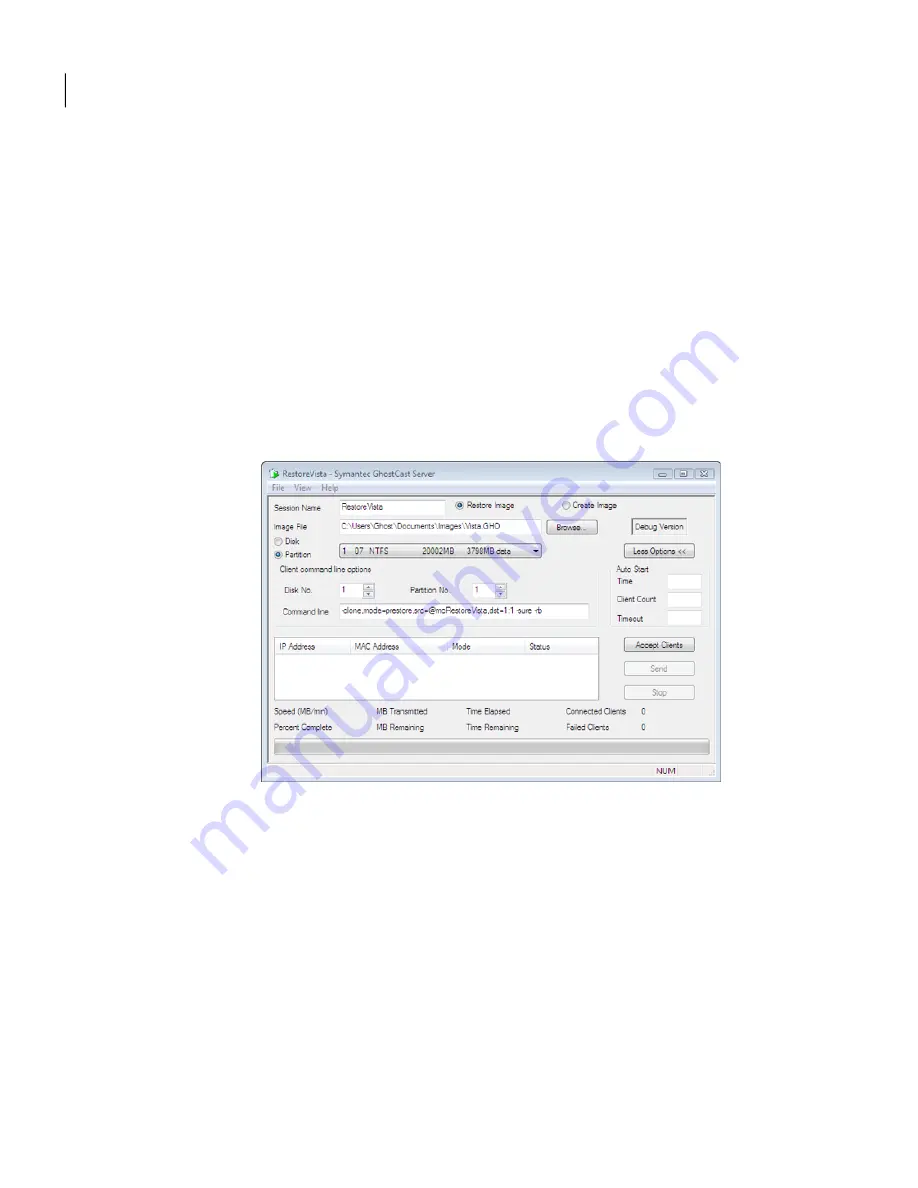
4
In the Partition No. box, type the partition number, if required.
5
In the Command line box, type the client clone command.
Add other switches to the command line to execute specific commands on
the client computer.
For example, if the initial command is:
-clone,mode=prestore,src=@mcSessionNm,dst=1:1
Add the following switches to avoid prompts and restart the client computer
after the image has restored:
-clone,mode=prestore,src=@mcSessionNm,dst=1.1 -sure -rb
Only use the -sure switch when you are sure that you are writing to the
intended disk or partition.
6
Click Accept Clients to accept the client computer into the session.
7
Start the client computers in DOS.
8
Run Ghost.exe using the -ja switch to log on to the GhostCast session from
the command line:
ghost.exe -ja=SessionNm
9
Confirm your choices on the client computers if the -sure switch was not
used.
See
“Running Ghost.exe on a client computer”
on page 115.
Using GhostCasting to create and restore images
Controlling the GhostCast session from the server
110
Summary of Contents for GHOST IMAGING FOUNDATION 7.1
Page 1: ...Symantec Ghost Imaging Foundation 7 1...
Page 3: ...Symantec Corporation 20330 Stevens Creek Blvd Cupertino CA 95014 http www symantec com...
Page 78: ...Managing partitions using GDisk Support for large hard disks 78...
Page 100: ...Editing registry keys and values using GhRegEdit Using GhRegEdit 100...
Page 116: ...Using GhostCasting to create and restore images Running Ghost exe on a client computer 116...
Page 122: ...GhostCasting from the command line GhostCast Server command line options 122...
Page 130: ...GDisk disk wipe specifications Determining disk size 130...
Page 166: ...Ghost for Linux Symantec Ghost utility support 166...
Page 170: ...Configuring firewalls Symantec Ghost port configuration 170...
Page 180: ...Troubleshooting Problems running Symantec Ghost 180...
















































